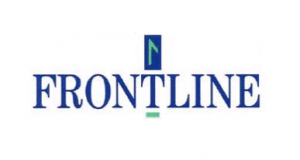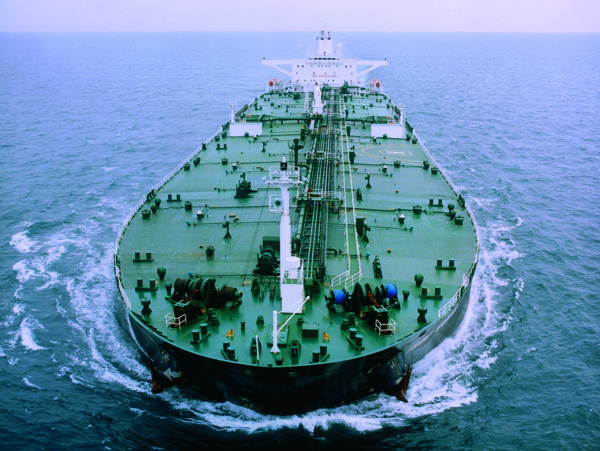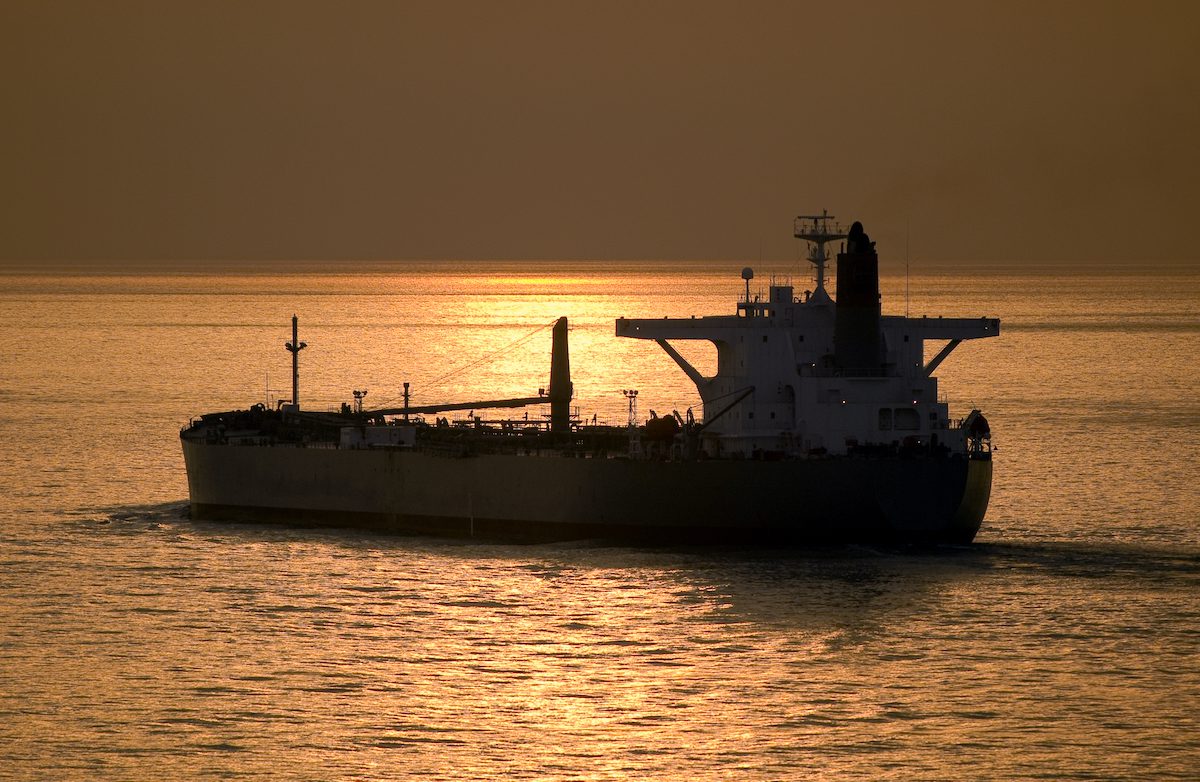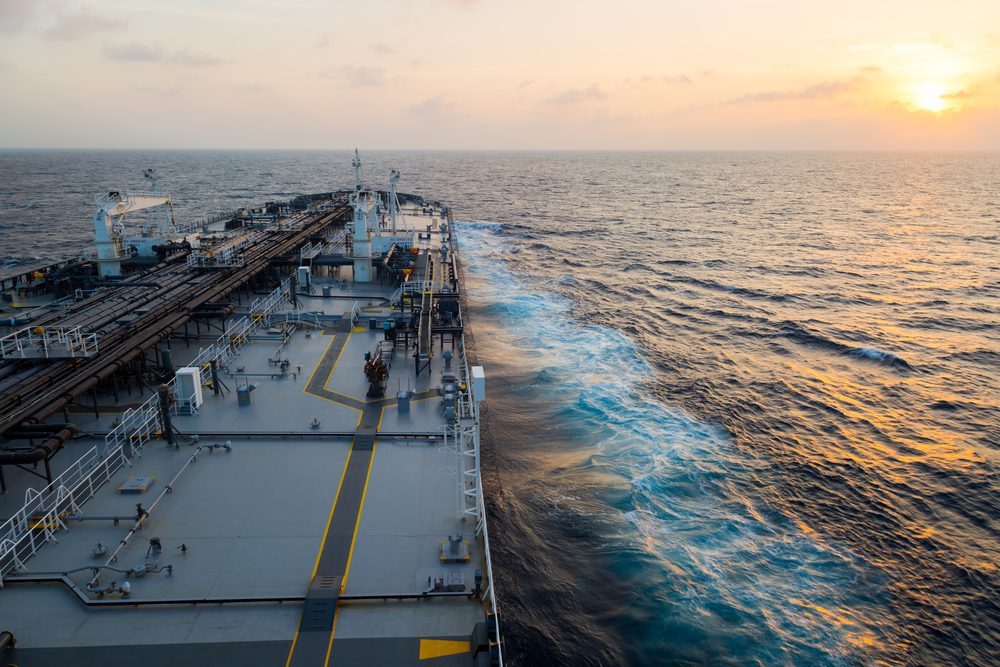 (Bloomberg) — The biggest slump in tanker rates since January is signaling weaker U.S. oil imports and spurring analysts to predict a 15-year low for shares of Frontline Ltd., whose ships haul almost enough crude to meet daily world demand.
(Bloomberg) — The biggest slump in tanker rates since January is signaling weaker U.S. oil imports and spurring analysts to predict a 15-year low for shares of Frontline Ltd., whose ships haul almost enough crude to meet daily world demand.
Rates for the biggest crude carriers tumbled 68 percent in the past two weeks, more than reversing their advance since the end of June, according to Clarkson Plc. Earnings had risen after oil cargoes to the U.S., the second-biggest source of demand for supertankers, expanded for three months. Shares of Hamilton, Bermuda-based Frontline will plunge 43 percent in a year, the average of 13 analyst estimates compiled by Bloomberg showed.
U.S. oil imports rose as domestic prices reached a 17-month high, narrowing the discount to foreign crude and making shipments from abroad more attractive. Goldman Sachs Group Inc. and Credit Suisse Group AG say the gap will widen again as the nation meets the highest share of its own energy needs in almost three decades. The world’s largest economy is already importing 28 percent less oil than the peak in 2005, government data show.
“There might be a temporary blip, but imports are going to come off in the next couple of months,” said Erik Nikolai Stavseth, an analyst at Arctic Securities ASA in Oslo whose recommendations on shipping-company shares returned 47 percent in the past two years. “That’s reflected in the freight rates. I’d advise my clients to short stocks of crude-tanker owners.”
Break Even
Rates for very large crude carriers, each hauling 2 million barrels, fell to $7,954 a day on Aug. 2, having risen as high as $24,493 on July 12, according to Clarkson, the biggest shipbroker. Earnings last exceeded the $25,500 that Frontline says it needs to break even in November. Freight swaps indicate the vessels won’t be profitable again until at least 2015.
Frontline’s net loss will widen to $123.7 million this year from $95.4 million in 2012, according to the mean of 19 analyst estimates compiled by Bloomberg. The shares, down 16 percent to 15.60 kroner this year in Oslo trading, will reach 8.84 kroner in 12 months, the forecasts show. That would be the lowest price since April 19, 1999, according to data compiled by Bloomberg.
The company operates 32 VLCCs and 18 Suezmaxes half the size, with a combined carrying capacity of about 82 million barrels. Freight rates can be an early indication of imports because it takes about 50 days to book a cargo of Middle East oil and deliver it to Houston. Saudi Arabia is the U.S.’s biggest supplier of seaborne crude, customs data show.
Seaborne Supply
Daily U.S. imports, including by pipeline, reached 7.73 million barrels in May, up from this year’s low of 7.27 million barrels in February, according to the most recent government data. Seaborne supply will average 5.4 million barrels a day in 2013, from 6.1 million last year, Clarkson estimates. The U.S. is exceeded only by China in demand for VLCCs, shipbroker ICAP Shipping International Ltd. says.
China’s crude imports averaged 23.03 million metric tons a month in the first half, down 1.3 percent from a year earlier, customs data show. That was the first drop since at least 2005 in the country’s buying.
The Asian nation’s purchases will expand 8 percent to 5.4 million barrels a day this year, matching U.S. demand for the first time, Clarkson says. China’s manufacturing unexpectedly strengthened in July, signaling increasing demand for energy, government data show.
North Sea
West Texas Intermediate, the benchmark U.S. oil grade, now trades at a $1.77-a-barrel discount to Brent, which is pumped from under the North Sea and used to price imports. The discount on a closing basis narrowed to 20 cents on July 19 from as much as $23.18 in February.
U.S. oil prices may still be high enough to draw imports to the East Coast because of costs to transport crude internally, according to Omar Nokta, a New York-based analyst at Global Hunter Securities. Delivering oil on tankers from West Africa is about $6 a barrel cheaper than by railroad from the Bakken shale formation in North Dakota, he says.
Tanker rates also may get a boost because the fleet’s biggest expansion since the 1970s is ending. VLCCs on order at ship yards are equal to 5.2 percent of existing capacity, the smallest proportion in at least eight years, according to data compiled by Bloomberg from IHS Fairplay, a Redhill, England- based maritime researcher.
Chemical Exports
While U.S. oil production is bearish for crude tankers, it’s boosting demand for ships to export refined products, chemicals and liquefied petroleum gas. The U.S. government prohibits shipments of most crude grades, spurring sales of products derived from the oil.
Earnings for chemical tankers will reach the highest since 2009 next year, according to RS Platou Markets AS, an Oslo-based investment bank. Shares of Scorpio Tankers Inc., the Monaco- based owner of refined-fuel carriers, will jump 18 percent in the next year, the average of 11 analyst estimates showed. LPG transportation costs are the highest for the time of year since at least 2005, according to the Baltic Exchange in London.
That wasn’t enough to lift the overall profitability of the merchant fleet after owners ordered too many new vessels just before the start of the global recession. The ClarkSea Index, a measure of earnings across the fleet, is on course for the lowest annual average since at least 1990.
The VLCC fleet has about 20 percent too much capacity, the most since the mid-1980s, according to Sverre Bjorn Svenning, an analyst at Fearnley Consultants A/S. Overseas Shipholding Group Inc., the largest U.S. tanker operator, sought bankruptcy protection in November, about a year after second-ranking General Maritime Corp. took the same step.
Analysts at Goldman and Credit Suisse expect WTI’s discount to Brent to expand to at least $6 a barrel by the end of the year. Futures indicate the gap will reach $3.38 by December and $7.46 a year later.
“Buyers will import less crude as the WTI discount widens once again,” said Simon Newman, head of tanker research at ICAP Shipping International in London. “The narrowing spread showed there was some potential trade for the market, but it won’t supply the amount of cargoes needed to make a difference.”
– Rob Sheridan, Copyright 2013 Bloomberg.
Editorial Standards · Corrections · About gCaptain
This article contains reporting from Bloomberg, published under license.

 Join The Club
Join The Club












